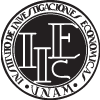TRAVEL TIPS
Customs
New customs declaration forms must be filled out by all incoming travelers, domestic and foreign. The belongings of all incoming travelers (except for diplomatic personnel) are subject to spot checks using a "traffic light" system. The form is passed through a machine: a red light indicates possessions will be spot-checked and a green light means a search will not be conducted.Tourists are allowed to bring in personal effects duty-free. According to customs regulations, in addition to clothing, personal effects may include a camera, video cassette player, laptop computer, CD player, 5 DVDs, 20 music CDs or audio cassettes, 12 rolls of unused film and a cellular phone.
Electricity
Power in Mexico runs at 127V, 60Hz and has an A-type plug for ungrounded quipment.Time zone
In Oaxtepec, it is UTC -6hReligion
No official religion. 90% Roman Catholic, 6% Protestant, 4% otherCurrency and Money Planning
Mexican coins come in denominations of 10, 20 and 50 centavos (cents) and 1, 2, 5, 10 and 20 pesos; bills come in denominations of20, 50, and 100, 200 & 500 pesos. Once in Mexico, currency can be exchanged at banks or exchange houses (casas de cambio) at the airport or in town.Currency rates can change quite substantially, although the peso has been quite stable for some years, however, as a rough guide:
1 EUR = 15 pesos
1 USD = 10 pesos
Acceptance of US dollars is not common, you should plan on exchanging your money upon arrival to the country. Banks will always exchange money for you, although they might be hard to find. If you pay in dollars, the change will almost always given in pesos. It is always wise to travel with at least enough pesos to cover travel for the day, since gas stations only accept pesos, as do most market or craft vendors. Visitors to Mexico should plan to purchase pesos ahead of weekends and Mexican holidays, when banks will be closed.
Major credit and charge cards (primarily MasterCard and Visa) are welcome at many establishments. Some ATMs belong to Cirrus, Plus and NYCE systems, enabling travelers to access their accounts and make withdrawals in pesos while in Mexico. There are ATMs available in the Oaxtepec area, but if you want to travel a bit around, don't count on finding them outside medium-sized cities.
Telephones
Area Code: 52, dialing to Mexico; long distance code is 01. When calling to the United States and Canada, you must first dial 001. To place other international calls, dial 00, followed by the country and city codes.In Mexico, you'll find pay telephones in most cities; some are coin-operated phones and others require prepaid cards that cost 30, 50 or 100 pesos and can be purchased everywhere, newsstands, mini-supermarkets, regular supermarkets, department stores, pharmacies, etc. at various rates.
Mobile Phone companies: Telcel, Iusacell (in spanish), Unefon (in spanish), Movistar (in spanish). Telcel and movistar appear to have GSM networks (1900mhz) while Iusacell and Unefon are cdma2000. You can use roaming (Check your own operator for pricing and roaming parteners in Mexico) or buy a prepaid SIM card that in conjunction with the correct unlocked GSM cell phone, allows you to have a Mexican cell phone number and to take advantage of the local rates without a cellular contract. The cost of a SIM card is aprox 100 pesos, rechard cards are in denominations of 100, 200, 300 and 500 pesos.
Embassies and Consular Services
There are consular offices or agencies in most main tourist and business cities. A complete list of embassies and consulates can be found at www.sre.gob.mx.Health Hints
No vaccinations are normally required to enter Mexico, but please check with your doctor.Travelers should take it easy on food and alcohol consumption the first three days after arriving in Mexico, particularly in cities at high elevations such as Mexico City.
The tap water is not drinkable in Mexico - you are advised to buy bottled water or boil water for 5 minutes.
Before going abroad, it is recommended that visitors learn what medical services their health insurance will cover overseas. If health insurance policy provides coverage outside country of origin, it is recommended that visitors carry both their insurance policy identity card as proof of such insurance and a claim form. Although many health insurance companies will pay "customary and reasonable" hospital costs abroad, very few will pay for medical evacuation back to a country of origin. Medical evacuation can easily cost US$10,000 and up, depending on one's location and medical condition.
Safety Tips
When traveling in Mexico, exercise the same safety precautions used traveling anywhere in the world: carry money inside clothing, keep your eye on your possessions at all times, don't leave valuables in plain view in vehicles, don't be alone on empty beaches and don't purchase or use illegal drugs. Travel on buses that run on toll highways during daylight hours.Take care to use radio-dispatched taxis. These can be found at all hotels and restaurants. Request the number of the taxi to be dispatched. If there is any question about a taxi requested, compare the picture on the laminated 5"x7" picture permit (tarjeton) with the driver. If there's no picture permit, or the picture doesn't match the driver, do not get in the taxi. At the airport and bus stations in Mexico City, use only officially designated taxi service for which special tickets are sold.
Telephones
Public phones marked Ladatel are the best to use for long-distance calls within or outside Mexico. Most of these telephones require debit phone cards, which can be purchased at newsstands or convenience stores. In addition, there are special streetside businesses marked Caseta de Larga Distancia which are set up for long-distance calling and are usually marked (long distance telephone booth). Casetas will have several private booths, a clerk who makes and times the call, directs you to a booth, and collects the money. Caseta offices usually offer fax service, and some even offer Internet service. They are also located at most bus stations in major tourist or business locales.Dial 090 to make a long distance call from a public phone. To dial directly within Mexico, dial: 01 + Area Code + Phone Number. To call Mexico from the U.S. or Canada, dial 011 + 52 + Area Code + Phone Number.
Phone numbers in Mexico City have eight digits. To call a Mexican cell phone number within the country, dial 044 + Area Code + Phone Number.
Mail Services
Courier services such as Mexpost (which is a branch of the Mexican Post Office), Federal Express, DHL, UPS and others operate throughout Mexico. Mail acceptance services such as Mail Boxes Etc. are also available. In addition, Internet centers or cyber cafes are increasingly found throughout the country.More information
For general tourism information while in Mexico, dial 078 from anywhere in the country.>>> Back



































